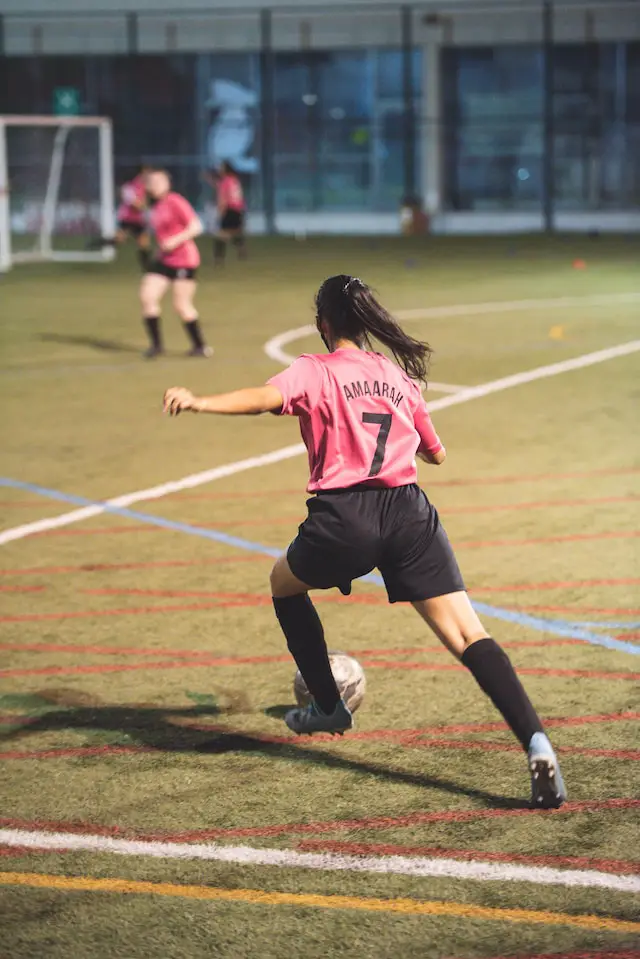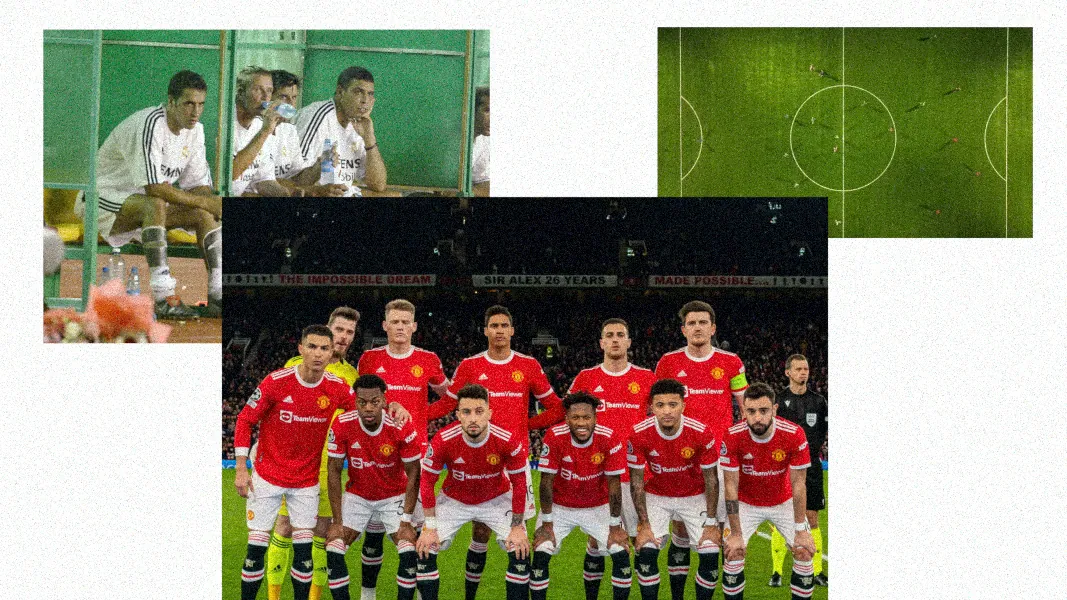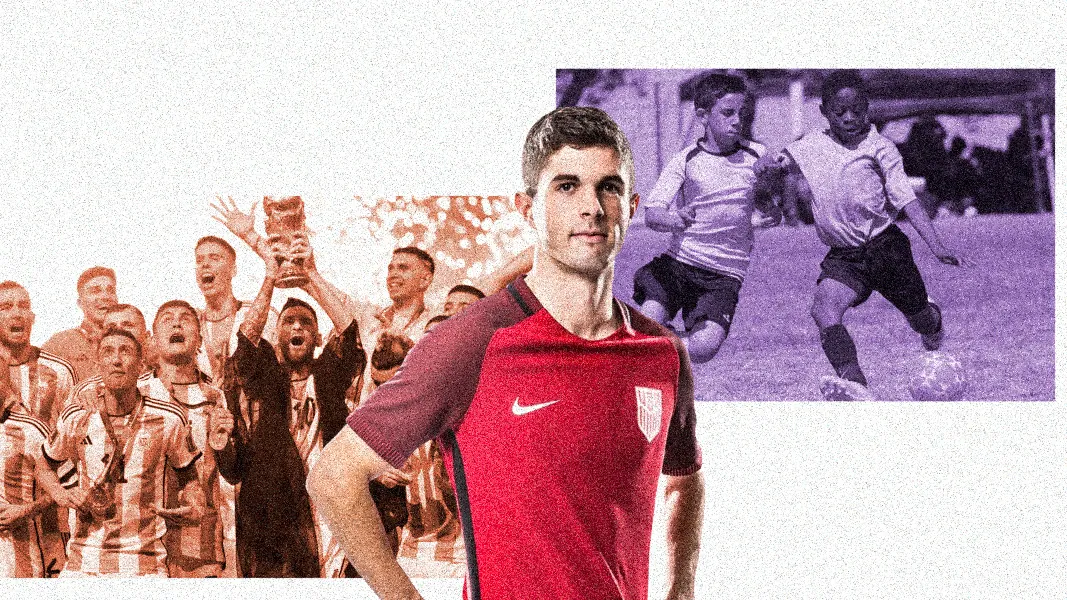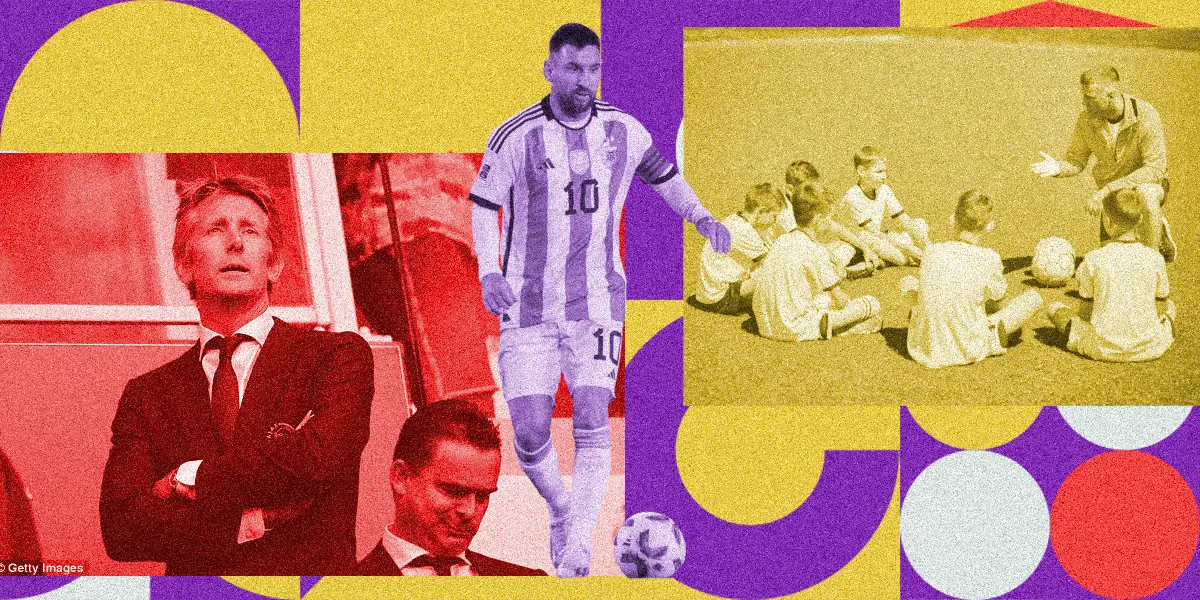Coed soccer, also known as mixed-gender soccer, is a dynamic sport that brings together both men and women to form a single team.
Unlike traditional soccer, where teams are often segregated by gender, coed soccer emphasizes inclusivity and diversity.
This article sets out to uncover the essence of coed soccer, exploring its rise in popularity within the United States and highlighting the crucial role it plays in fostering an environment of mutual respect and shared victories.
The Essence of Coed Soccer
At its core, coed soccer embodies a profound concept: men and women collaborating as equals to achieve success on the field. This unique format transcends traditional gender boundaries.
It thrives on the diverse skill sets that players of different genders bring to the game. Men and women contribute their unique strengths, creating a harmonious blend of agility, strategy, speed, and finesse.
Moreover, coed soccer highlights the significance of unity and mutual support. Players transcend gender norms, forming a cohesive unit that places camaraderie above all else.
Historical Evolution of Coed Soccer
Over time, coed soccer has emerged from a backdrop of conventional norms to become a symbol of progress within the world of sports.
The earliest inklings of coed soccer can be traced back to experimental matches where men and women shared the field, defying conventional gender roles in sports. However, it wasn’t until the latter half of the 20th century that coed soccer gained traction as a formalized concept.
Embed from Getty ImagesAdvocates of gender equality in sports championed the cause, paving the way for organized coed leagues and tournaments.
Coed soccer gradually transitioned from being an exception to becoming an integral part of the sports landscape. This transformation reflects a broader societal movement towards recognizing the value of diverse perspectives and talents in achieving collective success.
Rules and Regulations of Coed Soccer
Coed soccer adheres to a distinct set of rules designed to ensure equitable gameplay while fostering a sense of unity among players. These regulations address both the technical aspects of the game and the gender dynamics that make coed soccer unique.
- Team Composition: Coed teams comprise a mix of male and female players, promoting gender inclusivity. The number of players from each gender on the field at any given time is often balanced.
- Positional Equality: Positions are not gender-specific, allowing players to assume roles based on their strengths and abilities rather than predetermined norms.
- Rule Modifications: Some leagues adapt traditional soccer rules to accommodate coed play. For instance, physical contact rules may be adjusted to ensure safety and fairness, considering potential differences in strength and size between genders.
- Skill-Based Assignments: Teams are organized with consideration for players’ skill levels, rather than relying solely on gender-based assignments. This encourages collaboration and healthy competition.
- Substitutions: Substitution rules remain consistent with regular soccer, ensuring that all players have opportunities to contribute to the game.
- Sportsmanship and Respect: Mixed-gender soccer places a strong emphasis on sportsmanship and respect, creating an environment free from gender discrimination. Players are encouraged to uphold fair play and treat each other with courtesy.
- Referee Education: Referees undergo training to understand the nuances of coed play, ensuring consistent enforcement of rules.
Skill Diversity in Coed Soccer
- Varied Playing Styles: Men and women often approach soccer with differing playing styles. Men may emphasize power and precision, while women might showcase finesse and agility.
- Strategic Versatility: Skill diversity opens doors to innovative strategies. Coed teams can capitalize on each player’s strengths, crafting game plans that capitalize on a range of abilities and surprise opponents.
- Collaborative Skillsets: Coed soccer encourages players to learn from one another. Skills that are traditionally associated with one gender can be shared, leading to a richer collective skillset among all team members.
- Breaking Stereotypes: Skill diversity in coed soccer challenges gender stereotypes, showcasing that no skill is inherently gender-specific. Players redefine norms, inspiring a generation of soccer enthusiasts to embrace their unique talents.
- Inclusive Growth: Players develop holistically through exposure to diverse skillsets. This fosters personal growth, broadens horizons, and nurtures respect for differing perspectives on the field.
- Team Cohesion: The meshing of skill diversity enhances team cohesion. Players celebrate each other’s strengths, building trust and camaraderie that extends beyond the soccer pitch.
Navigating Gender Dynamics
Embed from Getty Images- Addressing Bias: Coed soccer encourages awareness of unconscious biases. Players, coaches, and spectators must remain vigilant against assumptions based on gender, treating each individual based on their skills and contributions.
- Communication: Open communication is key. Players should feel empowered to express concerns related to gender dynamics.
- Equal Opportunity: Coed soccer champions equal opportunities for both genders. Assigning roles and responsibilities based solely on merit ensures that players thrive based on their abilities, rather than predefined gender roles.
- Supportive Leadership: Captains, coaches, and team leaders play a crucial role in setting the tone. They should actively promote gender equality, addressing any incidents of bias and fostering a safe and respectful atmosphere.
- Empathy and Perspective: Players are encouraged to empathize with the experiences of teammates from different genders. This cultivates empathy and deepens mutual understanding, leading to stronger team bonds.
- Educational Initiatives: Promoting education around gender dynamics enhances awareness. Workshops, discussions, and resources can help players develop a nuanced understanding of the challenges and triumphs associated with coed play.
- Celebrating Diversity: Mixed-gender soccer celebrates the uniqueness of each player. Recognizing and celebrating the contributions of both genders nurtures an atmosphere where everyone feels valued and empowered.
Benefits for Players and the Sport
Coed soccer yields a multitude of advantages that extend beyond the field, both for individual players and the sport itself.
- Personal Growth: Players develop both athletically and personally. Exposure to diverse skillsets and perspectives cultivates adaptability, enhancing overall player development.
- Skill Expansion: It widens players’ skill horizons. Exposure to different playing styles equips individuals with a broader repertoire of techniques.
- Enhanced Teamwork: The fusion of skills strengthens teamwork. Players learn to harmonize their abilities, leading to more cohesive and effective team dynamics.
- Gender Equality Advocacy: Coed soccer champions gender equality, fostering a generation of athletes who advocate for fairness and inclusivity in all aspects of life.
- Breaking Barriers: Players challenge gender stereotypes. By excelling in diverse roles, they challenge societal norms, inspiring others to transcend limitations.
- Increased Engagement: Coed soccer attracts a broader audience. The sport becomes more appealing as it reflects a world where cooperation knows no gender boundaries.
- Community Building: Coed teams form tight-knit communities. Players bond over shared goals, nurturing friendships and fostering a deeper sense of belonging.
- Sport Evolution: Coed soccer contributes to the sport’s evolution. Embracing inclusivity ensures soccer remains relevant and aligned with changing societal values.
Nurturing Inclusivity from the Start Through Youth Coed Soccer
Embed from Getty ImagesCoed youth soccer represents a foundational step towards shaping an inclusive and equal sporting landscape. By introducing children to mixed-gender teams at an early age, we foster values of respect, cooperation, and skill development.
- Early Exposure to Diversity: Coed youth soccer exposes children to different playing styles and approaches. This early familiarity encourages a holistic understanding of the game.
- Skill Progression: Children learn from one another, evolving as athletes. Coed play provides a rich learning environment that nurtures well-rounded skillsets.
- Breaking Gender Norms: Coed teams challenge stereotypes and biases from the outset. Children grow up viewing each other as teammates, erasing gender-based limitations.
- Life Lessons: Youth coed soccer imparts essential life lessons. It teaches teamwork, communication, and the importance of respecting all individuals, regardless of gender.
- Building Empathy: Coed play fosters empathy by allowing children to walk in each other’s shoes. This builds understanding and mutual respect from an early age.
- Creating Future Advocates: Coed youth soccer cultivates young advocates for gender equality, ensuring a future generation that champions inclusivity both on and off the field.
- Stronger Bonds: Children form lasting friendships on coed teams. These bonds extend beyond soccer, contributing to a more united and compassionate society.
Conclusion
In embracing coed soccer, we champion a harmonious blend of talents and perspectives. Players, regardless of gender, unite to propel the sport forward, demonstrating that teamwork, skill diversity, and respect transcend traditional boundaries.
As we nurture this format, we lay the foundation for a future where unity prevails and the love for the game unites us all.
I hope you liked the insights shared in this article. If you did, then do share it with fellow soccer enthusiasts and continue the conversation!











